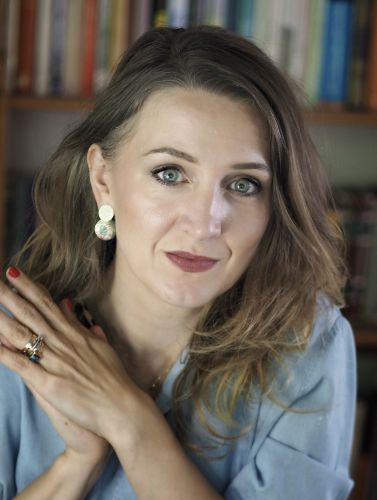BETWEEN LIBERTY SAND RESPONSIBILITY
Writer and philosopher Alicja Gescinska studies how what we currently experience to be liberty, in Europe today, could in fact mean a lack of liberty for the next generation. Gescinska herself experienced what lack of liberty entails, having lived with her parents and sisters in a studio apartment measuring four by four metres in communist Poland. The family fled to Belgium. She found it difficult to feel at home in Western society, where the increased liberty did not immediately seem to be any guarantee for an improved existence.
Liberty to her seemed synonymous with laziness, indolence and consumerism. Only when she discovered philosophy and literature did she encounter what according to her is the true, positive sense of the word liberty. Personal freedom and moral responsibility cannot always be reconciled. Where exactly do the limits of our liberty lie, and what potential does this offer?
Alicja Gescinska (Warsaw, 1981) is a writer and philosopher. Her 2016 debut novel Een soort van liefde (A Kind of Love) received the award for first-time authors, the Debuutprijs 2017, while she was also nominated for the Confituur Boekhandelsprijs, a booksellers’ award. Her 2018 essay Thuis in muziek. Een oefening in menselijkheid (At Home in Music. An exercise in humanity) was shortlisted for the Socratesbeker award. Intussen komen mensen om (In the Meantime People are Dying)(2019) was awarded the Liberales-boekenprijs 2019. She also penned the essay for the Dutch Philosophy Month, Maand van de Filosofie, entitled Kinderen van Apate. Over leugens en waarachtigheid (Apate's Children. About Lies and Candour). She made her debut as a poet in 2021 with a collection called Trojaanse gedachten (Trojan Thoughts). She has worked as an academic at Ghent University, Princeton University and Amherst College. She is currently director of the Philosophy by Research Programme at the University of Buckingham.
